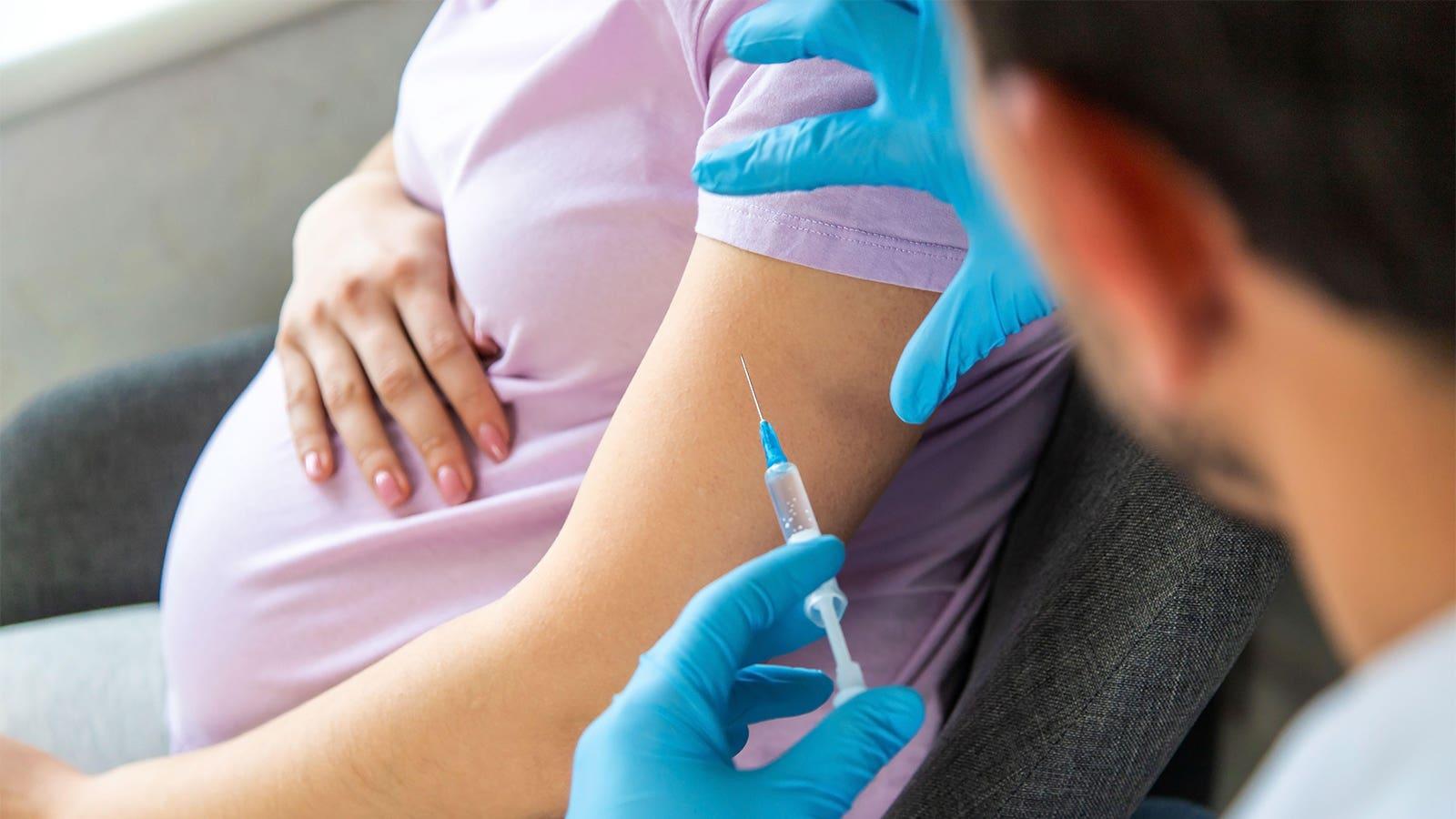A large study shows that new research shows the safety of Mranna in pregnancy
- There were 176.6 Major Congenital Malformations (MCMS) per 10,000 children exposed to the first trimester Covester Coverseter, compared to 179.4 per 10,000 children exposed to the vaccine.
There was no correlation between mRNA vaccine exposure and MCMS by organ system.
- There is no difference between those who received the vaccine and those who did not (both 0.4%).
Fetal exposure to maternal COVID-19 mRNA vaccines during the first trimester of pregnancy was not associated with an increased risk of 75 major congenital malformations (MCMs), according to a large French study of pregnant women and their babies.
Among more than half a million infants, the MCM rate was 176.6 per 10,000 infants exposed to the first-trimester COVID-19 mRNA vaccine, compared with 179.4 per 10,000 infants not exposed to the vaccine, said Mahmoud Zureik, MD, PhD of the Inter EPI-PHARE group.Saint-Denis, France and colleagues.
They noted in the JAMA Network Open that there was no association between mRNA vaccine exposure and MCMs by organ system, and no significant increase in any birth defect among a list of 75 MCMs.
"Our study validates the Covid-19 MRNA vaccine during pregnancy, which is the world's highest risk," zureik, colleagues and millions of women.
The study results reinforce recent research that shows no risk associated with the COVID-19 vaccine for mothers or babies.A previous cohort study showed that exposure to COVID-19 mRNA in the first trimester of pregnancy does not increase the risk of major structural birth defects.And a meta-analysis of more than 1.2 million women showed that vaccination during pregnancy is associated with reduced maternal risks of covid infection, stillbirth, and premature birth.
In addition to Resery ups Robert F. Kennedy Jr.CD DODY if healthy babies get a column for clinical separation under the "pregnancy" column.
The French research team used data from the EPI-MERES Mother-Child Registry, part of France's national health data system.They included all babies born alive to mothers aged 15 to 49 at the time of conception, whose pregnancies began between April 2021 and January 2022. The researchers excluded babies of mothers who used teratogenic drugs or had teratogenic infections.
The first exposure to round 19 diversity occurred between the day of conception and day 91, the last day of the Trimester.The study prevented pregnant women from receiving non-mRNA vaccines.The researchers looked for 72 MCM in the babies on the Birth Declaration, for Epispadias, hypospadias and Miccochally, in 2 years after birth.
Of the 527,564 babies in the study, 24.7% were exposed to the Irna engine in the first trimester, while the rest were not. MCM was present in 1.76% of vaccinated babies and 1.79% of unvaccinated babies. There was no difference between pregnancy rates between pregnant women who received the Irna vaccine and those who did not (both0.4%).
MCMS was analyzed for 13 of 13 systems: Cardiovascular;nervous system;hello;Ear, face and neck;respiratory system;orofact;dixestive system;abdominal wall;Determination system;Drawing;Leg;Chromosomic;and others.The expression of the ARN MRNACINIFIF was not associated with a greater risk of MCMS in any MCMS in any of them, with odds ratios that ranged between 1.20 (95%) and 0.84 (95%) for contracting.
The restrictions of the study include the restriction in the analysis of MCMS in live births, making it difficult to identify during pregnancy and pregnancy.The analysis does not include those with potential capabilities such as environmental factors with intention or teratogenic environment.The shortage of the MCMS studied can lead to broad confidence and a lack of statistical significance.





![[10/13 updated] Night prolos:](https://buzznice.com/Images/Blog/2025/19307-1013-updated-night-prolos-warning-warning-warning-warning-wa.jpg)


